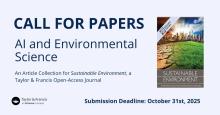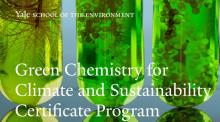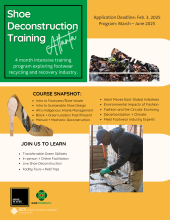Sustainability
Climate is Cool! ACS Focuses on Glaciers.
Ötzi the Iceman Reveals 5,300-Year-Old Secrets
The Scientist Reshaping China’s Desert Landscapes
ACS Local Section Sustainability Programming Grant
Grant at a Glance
Purpose
To promote opportunities that enhance the chemical community’s awareness of and the essential role of chemistry in responding to sustainability challenges.
Shoe Deconstruction Training Atlanta - Apply by February 3
Shoe Waste Atlanta and Black Sustainability, Inc. are accepting applications for their upcoming Shoe Deconstruction Training program! This four-month intensive program aims to educate and train the next generation of industry leaders on topics including material science, waste recovery, and circular economy.
WHERE: SW Atlanta
COST: $3,500
DURATION: 17 Weeks
SKILL LEVEL: Beginner to intermediate, no experience necessary!
The ACS Green Chemistry Institute is Hiring Two Contractors!
Enhanced Degradation and Thermal Stability in Partially Lignin-Derived Polyacetals by Incorporating a Linear Structure
The development of biodegradable polymers derived from renewable resources has been motivated by the environmental impact of plastic waste. The objective of our research is to improve
the degradation rate of spiro-polyacetals by integrating linear acetal units into their structure while preserving their desirable thermomechanical properties. The polymer, VPA-CDVE, was produced by reacting vanillin-based spiro-acetal monomer (VPA) with cyclohexanedimethanol vinyl ether (CDVE). The polyacetal that resulted was characterized using NMR spectroscopy, which
IOCD 2025 Essay Competition
Pagination
- Page 1
- Next page







